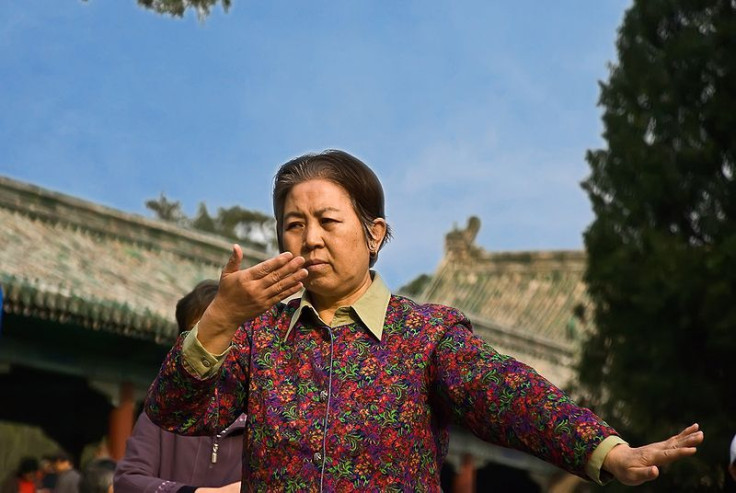Qigong Lowers Depression Symptoms In Breast Cancer Patients

Qigong, a Chinese meditation technique that combines fluid movements and breathing, has long been valued for its calming, balance-restoring effect on the body. Recently published in the journal Cancer, a study has found that practicing qigong may reduce symptoms and improve the quality of life of women who are receiving radiotherapy to treat their breast cancer.
Qigong involves coordinating slow, dance-like movements with breathing in order to achieve a healthy flow of energy, or qi, throughout the body. It is focused more on longevity, stress reduction, and improved health through mind and body, according to The New York Times.
Researchers at the University of Texas MD Anderson Cancer Center followed 96 Chinese women in Shanghai over the course of five to six weeks of radiotherapy. Half of the women were assigned to a qigong group, while the other half received standard treatment. Women in the qigong group reported less symptoms of depression at the end of radiotherapy than the women who received standard care. Furthermore, women who reported being the most depressed at the beginning of the study showed the steepest decline in depressive symptoms, according to the Houston Chronicle.
"It is important for cancer patients to manage stress because it can have a profoundly negative effect on biological systems and inflammatory profiles," said Dr. Lorenzo Cohen, professor in MD Anderson's Departments of General Oncology and Behavioral Science.
According to the American Cancer Society, up to one in four people with cancer develop clinical depression.
Cohen directs the Integrative Medicine Program at MD Anderson. Integrative medicine is distinct from alternative medicine, which he says consists of unproven treatments in place of traditional care, and complementary medicine, which consists of unprove treatments in addition to traditional care. He says that integrative medicine is more of a philosophy of care, a way for the doctor to focus on the person as a whole.
"We focus on the relation between the practitioner and the patients, and we are informed by evidence — we don't want to be prescribing things to our patients for which there is no evidence of safety or of benefit," he said. "Also, in integrative medicine we seek to make use of all possible avenues for healing that may work."
Cohen believes that one day qigong and other mind-body practices will be integrated to the point that they are just another part of standard care.
"Ideally, we would work at the whole level," he said. "We would work to get that person's body that has become hospitable to cancer to be as inhospitable as possible going forward."
Source: Chen Z, Meng Z, Milbury K, Bei W, Zhang Y, Thornton B, Liao Z, Wei Q, Chen J, Guo X, Liu L, McQuade J, Kirschbaum C, Cohen L. Qigong improves quality of life in women undergoing radiotherapy for breast cancer: Results of a randomized controlled trial. Cancer. May 2013.
Published by Medicaldaily.com



























